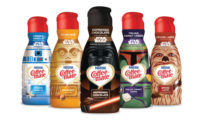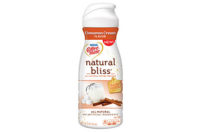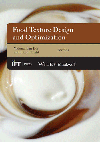Nestlé USA to convert Coffee mate portfolio to fully recyclable bottles
The move is part of the company’s larger plan to achieve net zero greenhouse gas emissions.

Arlington, Va.-based Nestlé USA is converting 100% of its creamer portfolio, including Coffee mate and Coffee mate natural bliss, to fully recyclable bottles by 2022.
Nestlé defined its detailed, time-bound plan to achieve net zero greenhouse gas (GHG) emissions. The phased approach aims to halve the company's emissions by 2030 and realize net zero by 2050.
To accomplish this, Nestlé, Vevey, Switzerland, said it will accelerate current initiatives, evolve its operations and uncover ways to balance remaining emissions through high-quality carbon removal projects or innovation. Nestlé is a signatory of the UN “Business Ambition for 1.5°C pledge” and is one of the first companies to share its detailed plan.
As part of the global effort, Arlington, Va.-based Nestlé USA is converting 100% of its creamer portfolio, including Coffee mate and Coffee mate natural bliss, to fully recyclable bottles by 2022. This follows the launch of Starbucks creamer in a fully recyclable bottle in 2019, the company said. It also makes recycling easier for the consumer, as the entire bottle, including cap, body and sleeve, can be recycled together.
The new bottle and shrink sleeve are 100% PET, made with recycling-compatible inks and materials recognized by the Association of Plastic Recycling, Nestlé said. With this move, Coffee mate is the first major creamer brand to commit to using fully recyclable shrink sleeves for PET bottles in the United States.
"We are striving for a more sustainable future, towards a healthier planet, a stronger society and a thriving economy," said Steve Presley, chairman and CEO of Nestlé USA. "That's why we are building on our existing work to set ambitious goals that will make a real difference, and why we continue to look for new and innovative ways to achieve them in our market."
Nestlé also announced a number of other new commitments and projects in the United States, its largest market, to accelerate its path toward a sustainable future and net zero emissions. The company said it is reimagining aspects of its U.S. business, from the ingredients that it uses, to the packaging that keeps its food and beverages safe, to how it makes and transports its products.
Looking for a reprint of this article?
From high-res PDFs to custom plaques, order your copy today!








